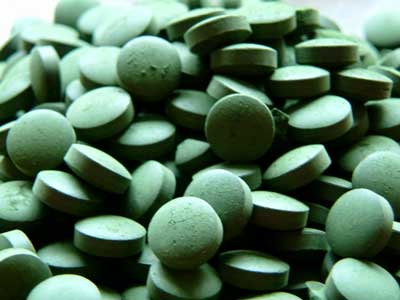
Nutrition
Spirulina has been deemed to be one of the best sources of food on our planet! Since it contains all of the nutrients essential to our survival, spirulina has earned its title as a superfood.
Nutrients found in spirulina:
High quality complete protein
All known B vitamins
Vitamin C
Vitamin E
Macrominerals (Calcium, Magnesium, Zinc, Potassium)
Trace minerals
Omega-3 fatty acids (Gamma Linolenic Acid)
Beta-carotene
Nucleic acids (RNA and DNA)
Chlorophyll

Health Benefits:
Cancer
Obesity
Diabetes
Hypoglycemia
Arthritis
Depression
Severe liver damage or disorder
Intestinal ulcers
Hemorrhoids
Asthma
High blood pressure
Constipation
Bleeding gums
Infections
Inflammation of joints and tissues
Body odor or breath odor
Various degenerative diseases
Essential fatty acid deficiencies
Mineral deficiencies (Magnesium is the most common)
People with the following conditions should consider taking Spirulina if they:
Have poor digestion and assimilation
Eat a lot of animal protein
Have anemia
Take prescription drugs (protects kidneys and liver)
Eat refined or processed foods
Have problems with obesity or being overweight
Currently engaged in physical activity or strength training
Have low energy levels
In order to better understand spirulina, we have to take a look at how it reproduces.